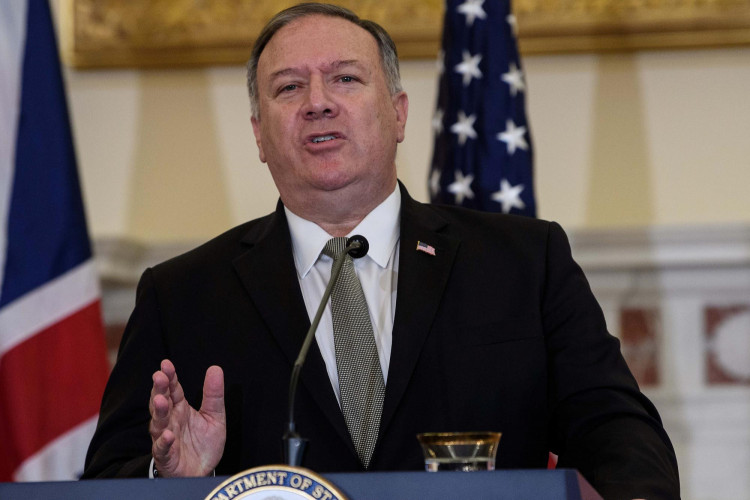Secretary of State Mike Pompeo announced the United States would end its decades-old restrictions on official contacts with the Republic of China (Taiwan) with only 11 days left before the Trump administration comes to an end.
The stunning declaration made Saturday by Pompeo will infuriate China and is the latest in a long string of diplomatic, military, and business moves by the Trump administration designed to strengthen Taiwan's ability to defend itself and its enhance its global standing.
Pompeo said the U.S. State Department had for several decades "created complex internal restrictions to regulate our diplomats, servicemembers, and other officials' interactions with their Taiwanese counterparts".
"The United States government took these actions unilaterally, in an attempt to appease the Communist regime in Beijing," he said. "No more."
"Today I am announcing that I am lifting all of these self-imposed restrictions," he added.
As a consequence, executive branch agencies "should consider all 'contact guidelines' regarding relations with Taiwan previously issued by the Department of State under authorities delegated to the Secretary of State to be null and void."
Pompeo also said any and all sections of the Foreign Affairs Manual or Foreign Affairs Handbook "that convey authorities or otherwise purport to regulate executive branch engagement with Taiwan via any entity other than the American Institute in Taiwan (AIT) are also hereby voided. The executive branch's relations with Taiwan are to be handled by the non-profit AIT, as stipulated in the Taiwan Relations Act."
AIT is the de facto U.S. Embassy in Taiwan and is a wholly owned subsidiary of the federal government of the United States. AIT chairman James Moriarty is the de facto U.S. ambassador to Taiwan.
In a statement released by the State department, Pompeo described Taiwan as "a vibrant democracy and reliable partner of the United States. He said Taiwan and the U.S. "share common values of individual freedom, the rule of law, and a respect for human dignity. Today's statement recognizes that the U.S.-Taiwan relationship need not, and should not, be shackled by self-imposed restrictions of our permanent bureaucracy."
Taiwan was delighted by the Trump administration's latest move that bolstered its diplomatic standing.
"Decades of discrimination, removed. A huge day in our bilateral relationship. I will cherish every opportunity," tweeted Hsiao Bi-khim, Taiwan's de facto ambassador to the U.S.
Pompeo's announcement was an apparent reply to a Chinese threat to punish the United States if Kelly Craft, its United Nations Ambassador, goes through with her plan to visit Taiwan from Jan.13 to 15.
China warned the U.S. will pay a "heavy price" if Craft visits Taiwan. Craft will be the highest-ranking U.S. diplomat to visit Taiwan since the U.S. severed diplomatic relations with the island nation in 1979.
She will visit Taiwan for meetings with senior Taiwanese diplomats, said the U.S. mission to the UN on Thursday.
"During her trip, the Ambassador will reinforce the U.S. government's strong and ongoing support for Taiwan's international space, in accord with the U.S. One-China policy that is guided by the Taiwan Relations Act, the three US-PRC joint communiqués, and the Six Assurances to Taiwan," said the US mission to the United Nations in a statement.






